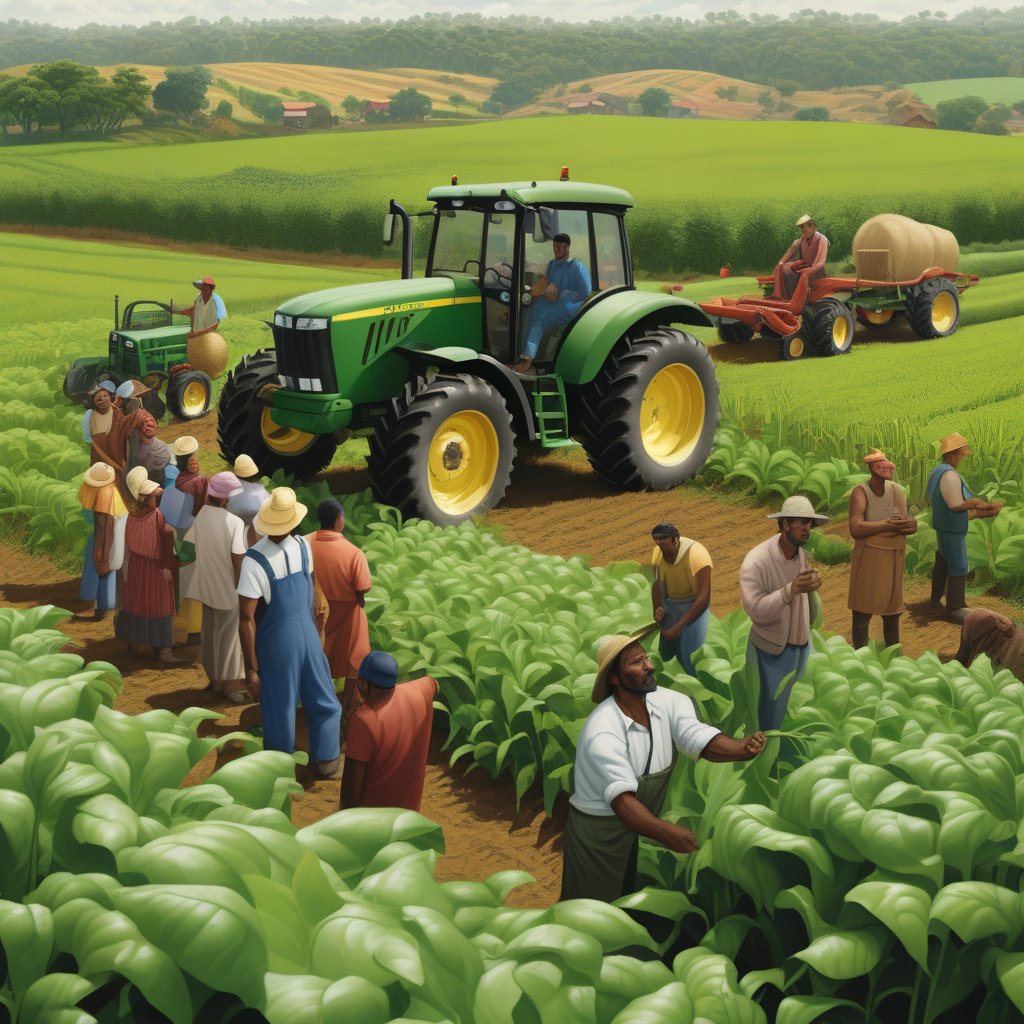Why Farmers Should Embrace Low-Carbon Biofuels for Sustainable Agriculture
In the realm of sustainable agriculture, the spotlight is now shining brightly on the potential of low-carbon biofuels to revolutionize farming practices. Experts are urging farmers to consider the adoption of these biofuels as a means to not only reduce carbon emissions but also to enhance overall agricultural sustainability. The shift towards low-carbon biofuels represents a significant step towards a greener and more environmentally friendly agricultural sector.
Policies that reward farmers for adopting “climate-smart” practices when cultivating low-carbon biofuel crops could play a pivotal role in overcoming the current obstacles hindering widespread adoption. These incentives would not only encourage farmers to transition towards more sustainable practices but also help drive innovation and research in the field of biofuels.
One of the key advantages of low-carbon biofuels lies in their ability to significantly reduce greenhouse gas emissions compared to traditional fossil fuels. By incorporating these biofuels into their agricultural operations, farmers can play a proactive role in mitigating climate change and its adverse effects on the environment.
Moreover, the adoption of low-carbon biofuels can lead to a more efficient use of resources, ultimately resulting in cost savings for farmers. These biofuels have the potential to enhance energy security by reducing dependency on fossil fuels, which are finite resources subject to price volatility and geopolitical uncertainties.
In addition to the environmental and economic benefits, low-carbon biofuels can also contribute to improved soil health and biodiversity conservation. The cultivation of biofuel crops can help diversify crop rotations, prevent soil erosion, and promote the restoration of degraded lands. Furthermore, the production of biofuels from sustainable feedstocks can reduce the pressure on food crops, thus helping to ensure food security for future generations.
To facilitate the widespread adoption of low-carbon biofuels, it is essential to create a supportive policy framework that incentivizes farmers to transition towards more sustainable practices. By offering subsidies, tax incentives, and technical assistance, governments can encourage farmers to embrace low-carbon biofuels and pave the way for a more sustainable agricultural future.
In conclusion, the call for farmers to adopt low-carbon biofuels for sustainable agriculture is not just a recommendation but a necessity in the face of climate change and environmental degradation. By harnessing the potential of biofuels, farmers can reduce their carbon footprint, enhance resource efficiency, and contribute to the long-term sustainability of agriculture. It is time for farmers to seize the opportunity presented by low-carbon biofuels and lead the way towards a more sustainable and environmentally conscious agricultural sector.
The post Farmers must adopt low-carbon biofuels for sustainable agriculture, experts say appeared first on Innovation News Network.
#biofuels, #sustainableagriculture, #climatechange, #agriculturalinnovation, #environmentalconsciousness












